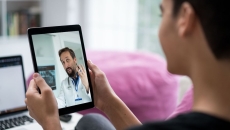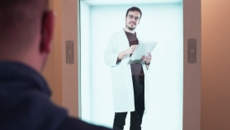Telehealth
Collaborations and integrations aim to streamline access to patient medical histories via national networks, drive more proactive pediatric care, expand behavioral telehealth and pioneer more hospital automation.
Kyruus Health is a nationwide platform than aims to boost access for its 90 million members by using specific matching techniques and partnering with 120 health systems and 100 health plan brands. Kyruus president Paul Merrild explains.
India's Armed Forces Medical Services is exploring the use of emerging technologies with partners in local universities and the government.
Success Stories & ROI
Ovatient is designed to help health system clients anywhere in the country by leveraging the healthcare DNA of the two founding health systems while serving as a catalyst for innovation.
Also, SA Ambulance Service is set to implement an electronic patient care record system.
The virtual care services platform's tools will be embedded into League's offerings and add secure chat and multipoint care navigation to its portfolio.
Remote Patient Monitoring
A risk management expert offers perspective on shoring up data security, preventing misdiagnosis and avoiding overreliance on RPM.
The Dallas-area hospital already uses a holographic video studio and will expand use by installing additional mini hologram displays at several locations throughout the facility and associated clinics.
The latest report from the Productivity Commission notes the "slow" uptake of remote care technologies despite wide availability.
The installation is expected to relieve overcrowding in rural health facilities.








